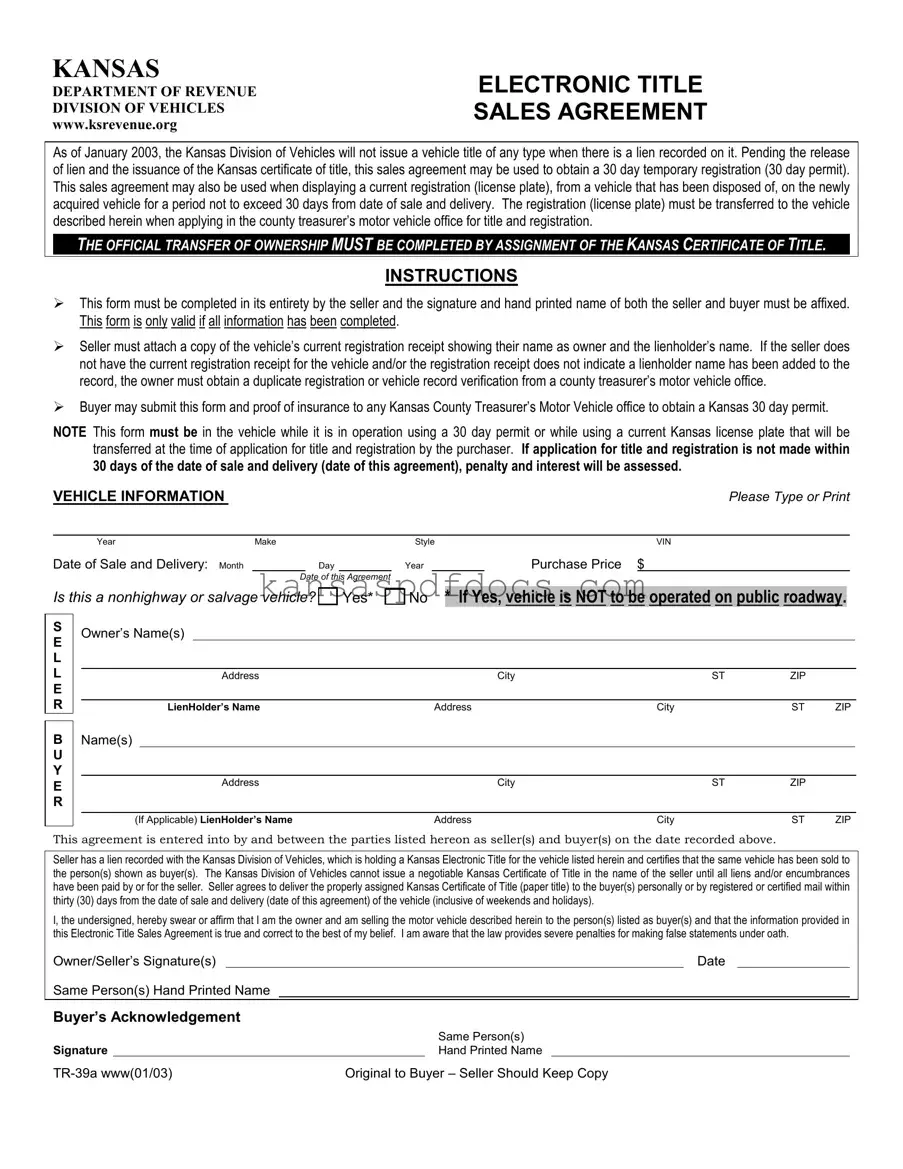Download Kansas Tr 39A Form
The Kansas Tr 39A form is a crucial document used in the sale of vehicles in Kansas, particularly when a lien is recorded against the vehicle. This sales agreement serves multiple purposes, including the ability to obtain a temporary registration while the title is being processed. Understanding the proper use and requirements of this form is essential for both buyers and sellers to ensure a smooth transaction.
Access This Form Now

Download Kansas Tr 39A Form
Access This Form Now
Your form isn’t ready yet
Edit and finalize Kansas Tr 39A online without printing.
Access This Form Now
or
Get PDF Form
